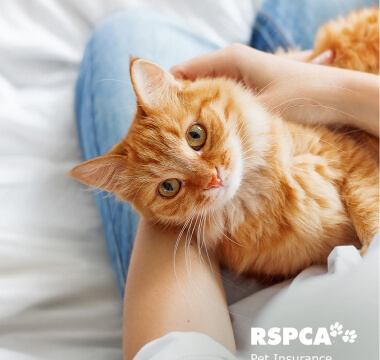Pros:
- Get your claims processed while you’re at the vet with GapOnly®
- $0 excess, which allows you to claim for the smallest vet costs
- Overseas pet travel is covered for New Zealand and Norfolk Island
- 10% multi-pet discount
- An older pet (above 9 years) can still be covered for injury AND illness
- A part of your first-year premium payments goes to supporting RSPCA
Cons:
- Sub-limits apply to certain conditions
- Clunky online system for checking quotes and online sign-ups
What’s RSPCA?
The Royal Society for the Prevention of Cruelty to Animals (RSPCA) promotes animal welfare and collaborates with government and industry organisations on animal welfare issues.
RSPCA pet insurance aims to mitigate one of the main barriers pet parents may face in attaining the best care for their fur babies—expensive vet bills.
They provide insurance for only dogs and cats, and you’ll get to choose between four different plans. All plans cover accidental injuries and illness and offer a $0 excess.

The core differences between each plan are shown in the table below.
While this is not something which is made every year of the insurance plan, it can be one of the small steps to improve the lives of all animals. On an individual level, it is worth preventing diseases in the first place than dealing with it and finding the best insurance means choosing one which offers reliable routine vet visits as standard.
A portion of your first-year premium payment will also go to aiding other animals in need.
In this article, we’ll explore the cost of RSPCA pet insurance, what’s covered, and what’s not. We’ll also compare RSPCA to other top pet insurance providers in Australia.
Is Your Pet Eligible for RSPCA Pet Insurance?
RSPCA pet insurance is available for cats and dogs.
Your pet will receive lifelong cover as long as you continue to renew your policy with RSPCA. This means that RSPCA will cover your pet until they pass on.
How Much Does RSPCA Pet Insurance Cost?
Your RSPCA pet insurance costs will depend on several factors.
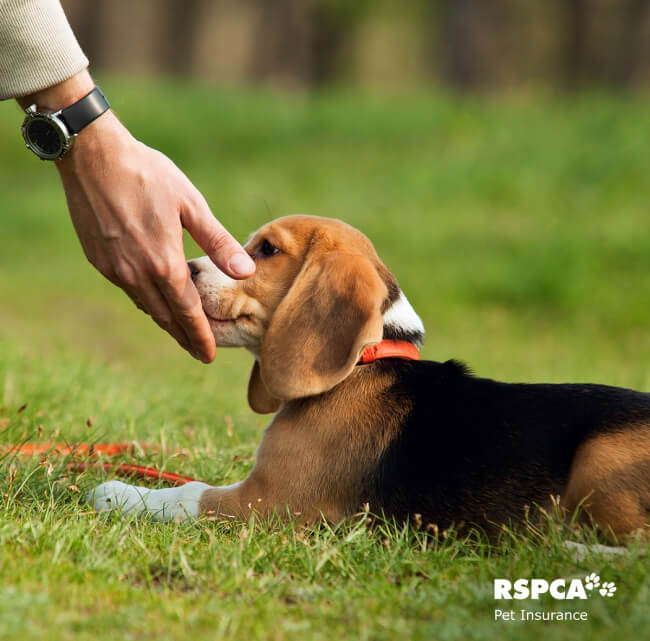
- The plan you choose. The annual limit and benefit percentage are fixed for each plan. Currently, the Ultimate Plus plan is the most expensive, while the General plan is the most affordable. Since it’s more costly, the Ultimate Plus plan offers the highest annual benefit limit and benefit percentage. The Ultimate Plan also has no sub-limits for tick paralysis, emergency boarding, and cruciate ligament conditions, while the other plans do.
- Routine care optional add-on. This add-on costs ~$2.30 per fortnight. You may opt for this add-on if you go for the Ultimate or Ultimate Plus plan. This add-on covers a $50 annual benefit for any of the following—microchipping, desexing, vaccinations, teeth cleaning, prescription diets, and alternative therapy. Sub-limits apply. Another $15 can be claimed for routine tests.
- Breed. Certain breeds are more prone to illnesses or are more expensive to care for and treat. This is taken into account when calculating your premium costs.
- Age. The older a pet, the more likely it is to experience injury or illness. Hence, it is more expensive to insure a senior pet.
- Your address. Vet bills may cost more in a certain area.
The following are some estimated quotes you can expect from RSPCA pet insurance.
The estimated quotes above are based on the following:
- The Economy plan is selected (75% benefit percentage and an $11,000 annual benefit limit).
- No routine care is added.
- The owner resides in New South Wales.
The Economy plan seems to offer the most value for money. The following table nicely depicts why we’d say so. The quotes included are for a 1-year-old Golden Retriever.
The table above shows the differences between the Economy plan and the Ultimate plan. You can see that these differences don’t account for too much, yet you’ll be paying around $10 extra per month.
The routine care add-on—which is not available for the Economy plan—doesn’t offer the most value for money, either. You’ll get just around $5 in cost savings per year by opting for this add-on (that is if you maximise the benefits).
So, if you’re looking for something budget-friendly, the Economy plan is a fantastic option for great coverage.
But if you don’t mind dropping a little extra cash, go for the Ultimate PLUS plan instead of the Ultimate plan. It offers numerous additional benefits and a higher annual limit of $20,000.
RSPCA pet insurance allows you to pay in instalments (fortnightly or monthly) or annually.
RSPCA Pet Insurance
Get a free quoteWhat makes RSPCA pet insurance worth it?
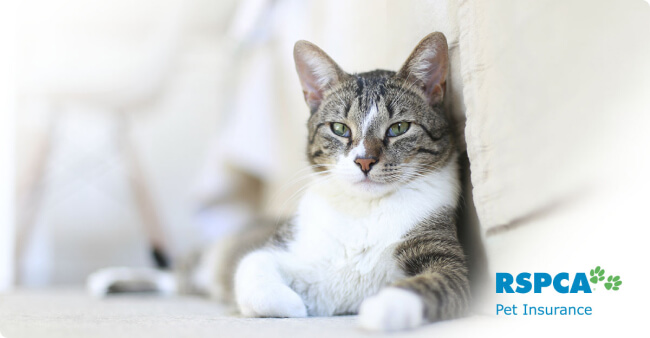
Pet insurance ensures you’ll never be caught between cost savings and getting the best care and treatment for your fur friend.
And vet bills can be costly. Treating an ear infection can cost anywhere between $180 and $900. Meanwhile, tick paralysis treatment may rack up bills ranging from $1,000 to $23,000 [1].
With RSPCA, a large portion of the vet treatment expenses will be paid for in the event of an injury or illness.
RSPCA also offers a $0 excess for all of their plans, meaning that you can claim for even the smallest vet bills.
Additionally, they are partnered with GapOnly®. This reduces your out-of-pocket expense, as you can get your claims processed directly at the vet in just 10 minutes. You’ll only have to pay the gap if you opt for this system.
Best of all, a portion of your first-year payments will be utilised for a good cause—to aid our less fortunate animal friends in Australia.
How does RSPCA’s price compare to other providers?
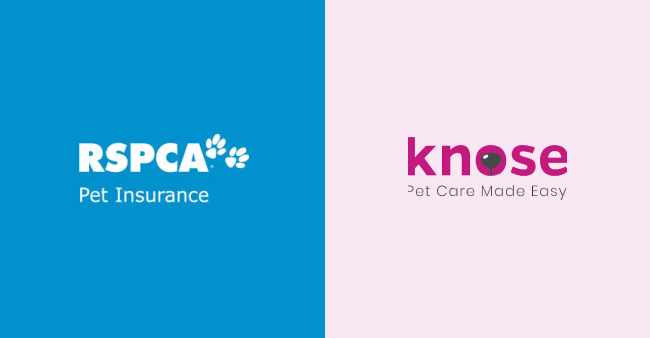
RSPCA’s pet insurance lands on the pricier end of the spectrum, and you’ll likely find other providers that offer cheaper plans.
Let’s compare the pricing of RSPCA to another popular pet insurance company in Australia, Knose Pet Insurance. The estimated quotes included are for a 1-year-old Golden Retriever.
For more or less the same amount per month, you can see that Knose offers a higher annual benefit limit and benefit percentage.
Interestingly, RSPCA pet insurance is priced very competitively if you want to insure an older pet. Also, they’re one of the few pet insurance companies covering injuries and illness for pets above the age of 9.
Plus, they offer claim reimbursement through GapOnly®, while some other brands don’t. This means that your claims can be processed on the spot. Even without GapOnly®, reviews have noted that they typically process their claims within a week or two, which is decent.
All in all, RSPCA is a fantastic choice if you have older pets to insure or if you want to contribute to a good cause while protecting your pet!
RSPCA Pet Insurance Policy and Information
We’ve put together some important details regarding RSPCA pet insurance. Check them out below!
Here are some other helpful details:
- Claim pre-approval is available. You can seek pre-approval for vet treatment costs if you know your pet will need treatment.
- If your pet is adopted, any veterinary history required is only from the time you took ownership of your pet.
RSPCA Pet Insurance Reviews
RSPCA pet insurance has garnered a highly positive review of 4.5 stars out of 5 based on over 1,100 user ratings.
Many users note that submitting vet claims is easy and straightforward. Your vet can submit your claim on your behalf.
Additionally, users mention that the claim process is rapid and smooth. So you can expect your claims to be reviewed and processed within a week or two.
On the flip side, a few users have mentioned that the RSPCA pet insurance premium is more expensive than other companies, despite offering similar benefits.
When should you consider insurance for your pet?
To err on the side of safety, it’s always best to have your pet insured as early on as possible.
Since insurance companies do not cover pre-existing conditions, getting them insured when they’re younger allows you to maximise the benefits of your policy as your pets get older.
RSPCA provides lifelong cover for your pets. So as long as you renew the policy, the company will cover your pet for new injuries and illnesses that arise until your pet passes on.
On that note, you can expect the premium price to increase as your pet gets older.
What’s Covered By RSPCA Pet Insurance
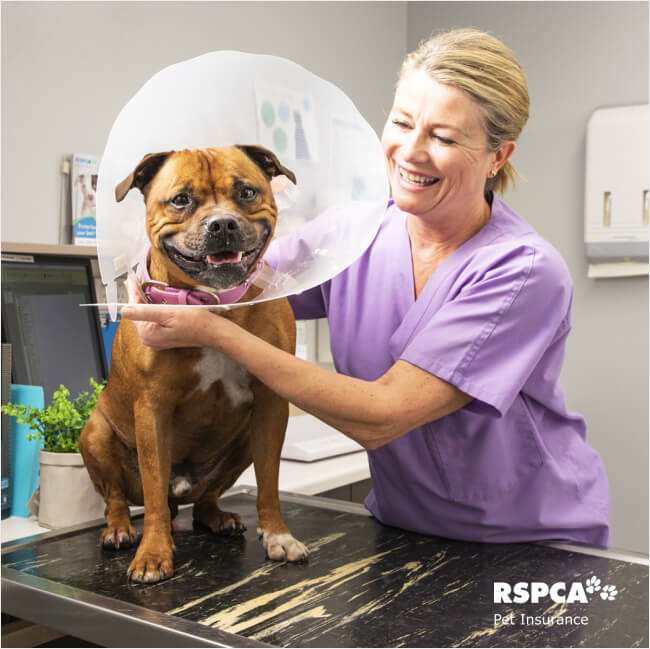
All four RSPCA plans typically cover the same types of injuries and illnesses.
Also, the company covers more or less the same illnesses and injuries that other pet insurance companies do.
For instance, injuries resulting from burns, electrocution, or motor vehicle incidents will be covered.
Additionally, examples of illnesses covered include the following:
- Skin, ear, and eye conditions
- Cancer
- Gastrointestinal conditions
- Tick paralysis
You can opt for their routine-care add-on, which includes items such as teeth cleaning, alternative treatment, behavioural therapy, health tests, and vaccinations.
If you’re keen, feel free to read up on RSPCA’s full list of inclusions in their product disclosure statement.
What’s Not Covered By RSPCA Pet Insurance
A general list of exclusions for RSPCA pet insurance includes the following:
- Dental illness
- Pre-existing conditions
- Elective treatment
- Medications not approved in Australia
You can read up on the complete lists of insurance exclusions in their product disclosure statement.
RSPCA Claim Reimbursement
You can have your claims submitted to RSPCA through either of the following three methods:
- You can have your vet do this for you during your vet visit. RSPCA will update you on your claim status even if your vet performs the claim submission for you.
- You can access their secure Pet Portal to submit your claims electronically.
- The claim submission can be made via paper forms, which are sent via post.
If your vet offers this, they can help you submit your claims via GapOnly®. Your claims can then be processed and approved in as quickly as 10 minutes! With that, you won’t have to pay too much upfront, just the portion not covered by insurance.
GapOnly® is only available from 8:00 am to 8:00 pm on Mondays to Fridays or between 8:00 am and 5:00 pm on Saturdays.
Cancellation Information
You can perform a cancellation of your insurance at any time by contacting the RSPCA customer service team.
RSPCA offers a generous cooling-off period of 30 days, which is longer than most of their competitors. During this 30-day period, you can cancel your policy and receive a full refund of the amount you paid, excluding any taxes, duties, or transaction fees that RSPCA cannot recover.
If you cancel your policy outside the cooling-off period, the outcome depends on whether you pay annually or by instalment (monthly or fortnightly).
- If you pay annually, you will be refunded the policy cost for the time period that remains. RSPCA will retain a portion of the payment that covers the time period your pet has already been insured.
- If you pay by instalment, no refund will be provided.
If your pet passes away, the above conditions apply.
Does RSPCA Cover Pre-Existing Conditions?
Like other insurance companies, RSPCA does not cover pre-existing conditions.
A pre-existing condition is a condition that has already existed or shown symptoms before your policy start date or during the waiting period.
Suppose your pet has a temporary illness before you take up a policy. In that case, it will not be considered a pre-existing condition if this criterion is met—no noticeable signs or symptoms of the condition appears during the 18 months before your policy start date.
Because pet insurance does not cover pre-existing conditions, having your pet insured when they’re younger helps you get the most out of your policy.
Final Takeaway: Is RSPCA Pet Insurance Worth It?
There are cheaper alternatives to RSPCA pet insurance. Providers like Knose and PetsOnMe offer a similar cover for more affordable prices.
Nonetheless, it’s a little difficult to declare the top runner here. Premium prices increase as your pet ages, and the margin of increase can differ from one company to another. In the long run, it’s hard to determine which company offers the best deal.
If you’re looking to insure older pets, especially if they’re above the age of 9, RSPCA will be one of the top options—if not the top. There are limited brands that offer illness and injury cover for pets above 9 years.
As pet parents, the welfare of our fur family members is our top priority. And getting your fur baby insured and protected ensures they get to enjoy their best life as part of your family!
As pet parents, the welfare of our fur family members is our top priority. And getting your fur baby insured and protected ensures they get to enjoy their best life as part of your family!
PawInsure.com.au

